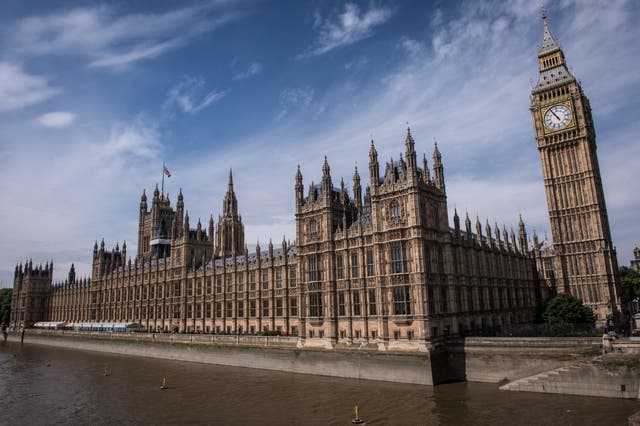Royal College of Physicians adds voice of concern on assisted dying Bill
The Terminally Ill Adults (End of Life) Bill, which relates to England and Wales, returns to the House of Commons on Friday.

Another leading medical body has raised concerns about the risks of the assisted dying Bill “failing to protect vulnerable patients”, on the eve of its return to Parliament.
The Royal College of Physicians (RCP) said it believes there are “concerning deficiencies” with the proposed legislation as it stands.
Its statement follows one earlier this week from the Royal College of Psychiatrists (RCPsych), which said it has “serious concerns” and cannot support the Bill in its current form.

That statement was branded by one opponent of the Bill as a “blow to its foundations”.
The Terminally Ill Adults (End of Life) Bill, which relates to England and Wales, returns to the House of Commons on Friday for the first time since a historic yes vote in November.
Prime Minister Sir Keir Starmer, who voted for the Bill last year, has indicated he remains supportive of the proposed legislation and that it has “sufficient time” in Parliament amid claims from some it is being rushed through.
In a boost for the Bill, new Reform MP Sarah Pochin has confirmed she will support it.
Mike Amesbury, who she replaced in the Runcorn and Helsby constituency earlier this month, had voted no last year.
Reports speculating on the numbers of MPs who had supported the Bill last year but are now considering voting against it have been dismissed by the Bill’s backers who reject the idea the proposed legislation is at risk of collapse.
But the RCPsych statement prompted MPs, some with medical and clinical backgrounds, who back the Bill, to urge their colleagues in Parliament to support it.
A statement, signed by supportive MPs including doctors Neil Shastri-Hurst, Simon Opher and Peter Prinsley, insisted “most healthcare professionals understand that the current law is not working”, that it “criminalises compassion”, places clinicians “in an impossible position” and cannot be tolerated or defended.
In their position statement on Thursday, the RCP said despite changes to the Bill in recent months which supporters argue have strengthened it, the college believes “there currently remain deficiencies that would need addressing to achieve adequate protection of patients and professionals”.
It said there are “key factors” which must be in place should assisted dying be legalised.
These include decisions around a patient’s prognosis to be informed by “expert clinical professionals including those who know the patient”, decisions on capacity, and safeguards around coercion to be informed by face-to-face assessments of “relevant and appropriately skilled health and care professionals”, regulations of medicines and a guarantee resources will not be diverted from other end-of-life care.
Their concerns follow those from RCPsych which said it has “unanswered questions” about the safeguarding of people with mental illness, and warned of a shortage of consultant psychiatrists to meet the demands of the Bill.
Both colleges said they remain neutral on the principle of assisted dying.
The RCP’s clinical vice president, Dr John Dean, said: “The ultimate decision on assisted dying rests with society through Parliament, but professional and clinical issues are integral to legislation, regulation, guidance and safe and effective implementation.
“Our members and fellows who we represent have a wide range of views on assisted dying. While the RCP neither supports or opposes a change in the law on this matter, the Bill in its current form has concerning deficiencies.
“Notably, the proposed mechanisms of decision making are not in line with good clinical and professional practice. Further statutory guidance is also required to ensure effective regulation of drugs, providers, and the involvement of clinicians.
“Parliament must address these critical issues in the legislation or risk failing to protect vulnerable patients and uphold the integrity of clinical practice.”
The chair of the Royal College of GPs also told the BBC this week that doctors have “real concerns about the practical and legal implications of a change in the law on assisted dying”, which she said “must be acknowledged and addressed, so that any legislation is watertight”.

Speaking during a visit to Albania, Sir Keir was asked if his views on assisted dying had changed during the passage of the Bill.
He told broadcasters: “My views have been consistent throughout.”
In a later interview he reiterated the Government’s neutrality on the Bill and said it was facing “a lot of scrutiny, both inside Parliament and outside Parliament”, adding that he was “satisfied” it had “sufficient time” in Parliament.
Some opponents have claimed proposals are being rushed through as a private member’s bill and that it has not had the same level of scrutiny had it been a Government Bill.
Dozens of amendments have been tabled and many could be debated and voted on during a five-hour sitting in the Commons on Friday.
It is not yet clear whether time will allow for a third reading vote, with the possibility that the report stage could instead run into a second day next month because of the large number of further amendments proposed.
As it stands, the Bill would allow only terminally ill adults in England and Wales, with fewer than six months to live, to apply for an assisted death – subject to approval by two doctors and the three-member expert panel featuring a psychiatrist, social worker and senior legal figure.
Kim Leadbeater, the Labour MP behind the Bill, defended the scrapping of the High Court judge safeguard which has been replaced by the expert panel.
She told LBC Radio this was a “more holistic approach, a more patient-centred approach” and is “much, much stronger” as a result.





